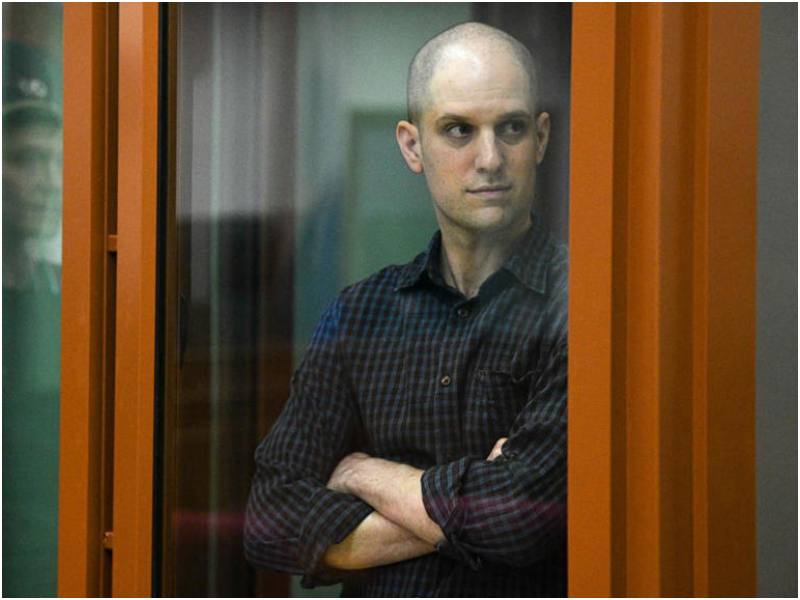Wall Street Journal reporter Evan Gershkovich has been sentenced to 16 years in a Russian penal colony on charges of espionage.
The verdict, delivered on Friday, marks a severe turn in the already tense U.S.-Russia relations.
The Russian State Prosecutor’s Office had sought an 18-year sentence, but the court handed down a 16-year term instead.
Gershkovich, a 32-year-old American journalist, has been detained in Russia for 15 months since his arrest by the FSB intelligence agency while on a reporting trip in Yekaterinburg.
Gershkovich’s trial, which began in June with a closed-door hearing, moved to closing arguments after only two days of proceedings.
The expedited nature of the trial has led to speculation that Russia is accelerating the process to facilitate a potential prisoner exchange.
Historically, Russia has preferred to negotiate such exchanges only after securing convictions.
The Wall Street Journal, along with the U.S. government and numerous international media organizations, has denounced the charges as baseless.
“Evan’s wrongful detention has been an outrage since his unjust arrest 477 days ago, and it must end now,” the Journal stated. “Evan was doing his job as a journalist, and journalism is not a crime.”
The Biden administration has been actively negotiating for Gershkovich’s release, as well as that of former Marine Paul Whelan, who has been imprisoned in Russia on similar charges for over five years. U.S. officials have accused Russia of using such arrests to hold Americans as political bargaining chips.
Recent history supports this claim, with high-profile exchanges such as WNBA star Brittney Griner for Russian arms dealer Viktor Bout, and former U.S. Marine Trevor Reed for Russian pilot Konstantin Yaroshenko.
Russian Foreign Minister Sergey Lavrov confirmed that negotiations with the Biden administration are ongoing.
“The intelligence services of the two countries, by agreement between Presidents Vladimir Putin and Joe Biden back in June 2021, have been in contact to see if someone can be exchanged for someone else,” Lavrov stated earlier this week.
The secrecy surrounding Gershkovich’s trial has been a point of contention. Russian prosecutors accused him of gathering classified information on military equipment for the CIA, a claim the Wall Street Journal has categorically denied.
Despite the gravity of these accusations, no public evidence has been presented to substantiate them.
The case has drawn international attention and condemnation. Roger Carstens, the U.S. State Department’s special presidential envoy for hostage affairs, expressed optimism about Gershkovich’s eventual release.
“The U.S. government is going to bring both of them home,” he said, referring to both Gershkovich and Whelan, at the Aspen Security Forum.
Gershkovich’s conviction and sentencing underscore the fraught state of U.S.-Russia relations and highlight the perils faced by journalists operating in hostile environments.
The international community continues to watch closely, advocating for media freedom and the safe return of detained journalists.

